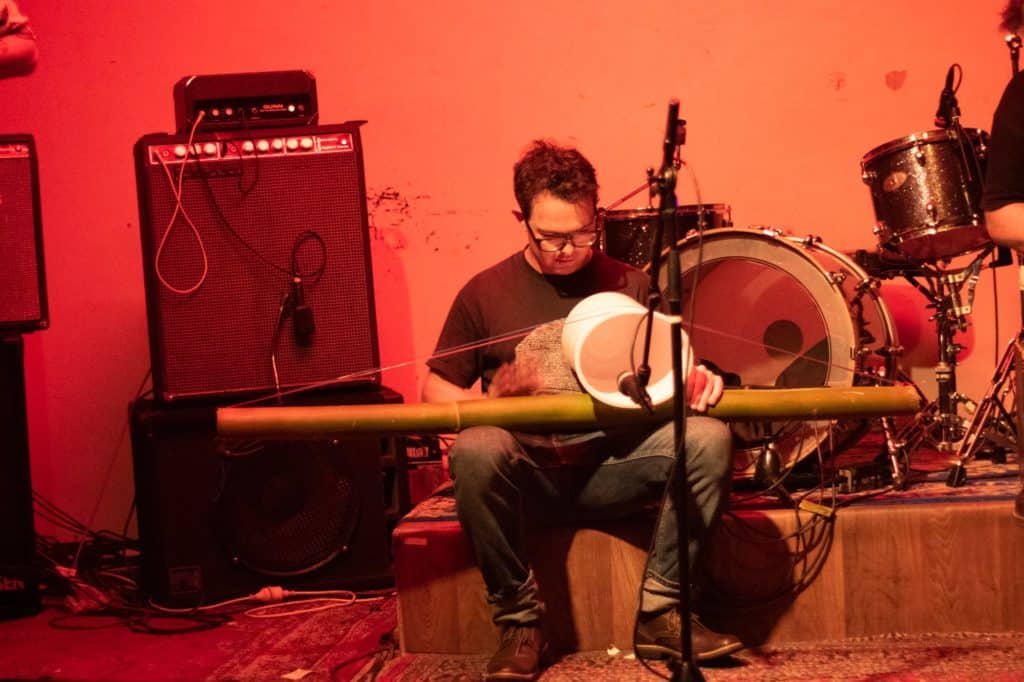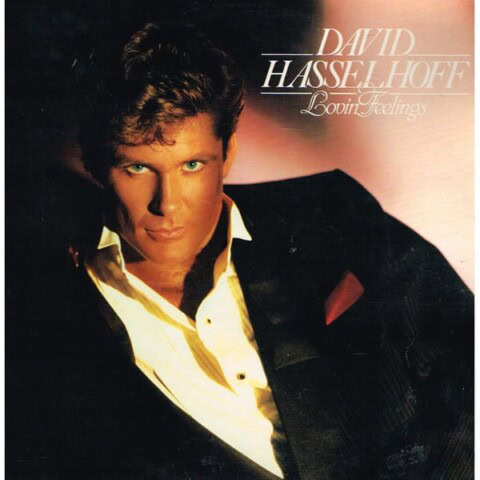What will music sound like in 50 years’ time? GARY STEEL has been thinking.

Hands up who remembers the band Figrin D’an And The Modal Nodes. Of course you know what I’m talking about: the group of hairless alien musicians, also known as the Cantina Band, who appeared in the bar scene in the original 1977 Star Wars movie.
When I first saw this strange scene of an alien group playing music that to my ears sounded as alien as they looked (although I later found out that it was written by film composer John Williams in a “sort of” sleazy 1940s jazz style), it really got me thinking about what music might sound like in the future.
Things change faster than we think they do. Back in 1977, when Star Wars first wowed audiences the world over and changed the movie industry overnight into a competition to make the biggest blockbusters, we lived in what would now be viewed as primitive times. We still played music on vinyl LP records or cassette tapes or formats that hardly anyone remembers like 8-track tape cartridges. We grew our hair long and tall and wore tight-at-the-crotch ‘bell-bottom’ trousers and probably only bathed once or twice a week. ‘Brazilians’ were sexy foreigners, not naughty ‘haircuts’, every cool male read Playboy “for the stories”, and cars with fuel injection and automatic gears were still a mad novelty.

My point? Time seems static while we’re living it every day, but science and technology are really moving things along at a frightening velocity. We may not have quite figured out how to make a teleportation device in order to explore the universe, but considering that the first commercial music recordings were released only a little more than 100 years ago, our progress in a short period of time is astonishing. Think about it: nobody in the 19th century, or any centuries before that in the entirety of human existence, had experienced recorded music. Or for that matter, television, or the Internet, or computers, or apps, or even iPads.

But we were talking about the future, not the past. If we can get from finding a way to use electricity to the invention of phones and the phonograph all the way to the smartphone in just a bit more than 100 years, what can we expect from the future, especially from music?
Sorry to mention the past again, but isn’t it amazing how the simple harnessing of electricity ended up revolutionising music itself? I mean, without electricity, we may still be cranking the handles of old gramophones and playing one scratchy piece of shellac at a time.

Electricity led to the invention of magnetic tape, and microphones, and amplification, and all three of those conspired to allow whole new genres of music to develop: Singers no longer needed to bellow from opera stages which led to the kissing-the-microphone style they called crooning, musical instruments were electrified and then new ones like the synthesiser were invented.

And once computers were in the picture, new ways of composing and ‘performing’ music were developed.
If all that can happen in a little more than a lifetime, what does the future hold? I’m excited, but also feel a little envious, because I’ll doubtless miss out on some of the most incredible developments in technology, and therefore, in music, unless they dig up some way to keep old cretins alive, which could be a big problem for future generations, when you think about it.
Let’s be realistic, then. What do you think music will be like in 50 years, and how do you think we’ll listen to it?

Barring a miracle, the likelihood that we’ll discover genuine alien cultures in that time are remote, so let’s forget a band of mixed aliens. [There are enough human freaks, in any case]. We take the status quo for granted, but will rock groups even still exist in 2064? Perhaps all music will be like Japan is today, where producers select cute boys and girls to be “idols” and cast them in made-up J-Pop bands and in crappy movies and squeeze whatever other mileage they can get out of them until they get married and breed.
https://www.youtube.com/watch?v=mXWoCd5j8ng
Or perhaps music will become incredibly purpose-built and anonymous, devoid of pretensions to art and culture but useful for various parts of our lives: that particular beat for the gym session, a style of restful ambient that’s better than taking a sleeping pill, a thrusting motivational energy-release at breakfast time, a sing-along anthem for the sports stadium.
Will there even still be styles dictated by cultural and social groups like there are today, or will everything be a big mess of influences, an op-shop melting pot? Why not combine teen pinup pop with elements of death metal, for instance, or slutty R&B with authentic country-blues?
Perhaps there won’t need to be groups and artists at all, because we’ll be able to order a simulacrum of everything we like, via computer interface to a 3D printer and holographic imaging. Cute J-Pop girls coming right up, Sir. And when they’ve stopped singing, you can do whatever you want with their 3D recreations in flesh-identical compounds.
Or maybe it’ll be a fusion between all the gratuitous entertainments we currently take for granted: an interactive gaming system that fulfils every need, including music and lust.
In 50 years, 3D printers will be out of this world, and there will be no such thing as internet-lag or ‘buffering’ of files. ‘Computer’ will be a defunct category, because the whole world will be computer-controlled, but storage will all be wireless and in the ‘cloud’. Already, we’ve become used to smartphones and the myriad of things they can do and what they represent, and we really don’t think of them as the busy little computer systems that they are. Think about where smartphones will be in 50 years. Ha!

Will music be a personal thing, or a communal activity? Will we still go to concerts? I reckon one thing that will change – must change – are loudspeakers. At the moment, we’re starting to get wireless speakers and wireless headphones that sound okay, but just okay. And we’re still stuck with listening in stereo, or really fake 5.1 or 7.1, which they call “surround sound” but is really just five or seven boxes with paper cones around the room blasting at you. Sure, a surround sound mix will divvy up the channels, but it’s still nothing like a true, seamless, all-around-you sound picture.

Someone will eventually figure out how to project sound differently, and it’ll change our world, just as it will when we can watch a film without being chained to a glass screen. Given any luck, music and pictures will become so high definition that they’re not like recordings and photos any more, but real life on replay. Imagine if, every time you put on that feelers album, you were right there with the guys in the studio while they recorded, and you could even float around to catch those special moments, like when James Reid scratches his bum. Feeling nauseous? Okay, hold that thought.
I’m sure someone more scientifically qualified than me could predict the future – or at least one of several possible futures – better than me. The only thing that could really hold all these exciting developments back, or even hurtle us back to the squalor of the Middle Ages, is pestilence, war or environmental degradation on a massive scale. That could happen, but the apocalypse isn’t something you want to take to bed with that sleeping pill. GARY STEEL
- This piece was originally published by Rip It Up (RIP) in 2014.















